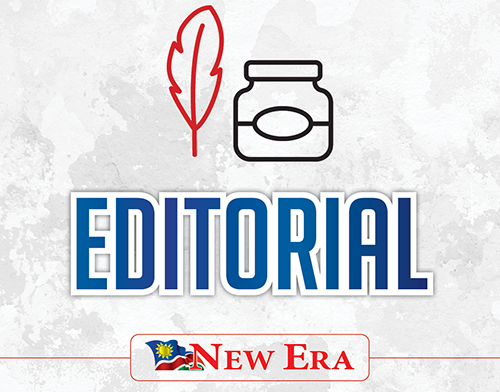That the Road Fund Administration considers toll roads is another punch in the gut that Namibians are not ready for and cannot afford.
The RFA said toll roads, as a possible solution to collect taxes to fund roads infrastructure, are at the consultation level, with stakeholders deliberating on the pros and cons.
At the moment, the cons seem overwhelming.
The dwindling numbers of working people and the struggling small business sector can not afford yet another tax.
Funding for roads and their maintenance forms part of the fuel price.
The RFA already collects about N$2.5 billion per year from road users through fuel prices.
Road users pay the RFA, some would argue exorbitantly, for fuel levies, vehicle licence fees, mass distance charges, cross-border charges and abnormal load fees.
The levies and fees the average Namibian does not pay directly to the RFA reach their pockets through the ever-increasing prices of food stuff and household items that reach us via trucks from South Africa and other neighbouring countries.
On top of that, we pay around a third of our income to the taxman.
It would seem the cost of living crisis Namibians have been subjected to in the last few years has not been taken into consideration by those thinking of burdening an already exhausted tax base.
While thousands have lost jobs as businesses closed or scaled down because of Covid-19 and an already sluggish economy, others took pay cuts. The constant and sharp increase in the fuel price shook every consumer’s pocket.
In 2020, the average price for both diesel and petrol was N$12 per litre. This week’s almost N$2 increase in the price of diesel, however, represents an increase of more than 83% during the last 21 months.
During that time, few institutions have offered any real pay increase.
The Namibian worker is under real pressure.
The RFA said their projects require about N$4.3 billion per annum to rehabilitate Namibian roads and keep them up to standard as the best roads in Africa.
That Namibian roads are kept in mint condition is indisputable, and the country is constantly adding more world-class roads infrastructure.
However, workers are constantly told to do more with less, and to tighten their belts.
It is high time that entities that rely solely on public money practice this principle. Also, greater emphasis should be put on innovation so these institutions develop, test and implement cost-effective ways and materials in their area of operation.
It would also help if less money is lost through wasteful expenditure and fraudulent activities.
The RFA needs funds to build and keep our roads in good condition, and should look at every possible way of raising the necessary funds for it. However, they should let the road user sit this round out.


